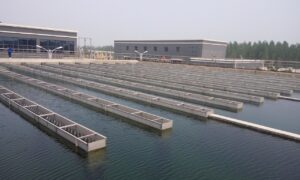You wouldn’t drink from a dirty glass, so why risk your family’s health with untreated water? Even the clearest-looking tap water can still be full of invisible threats like lead, bacteria, or nitrates. That’s why professional water treatment in Parsippany, NJ, is essential for every home.
Why Water Testing Protects Your Health
Contaminants in your water can cause serious health issues over time. From skin rashes to stomach illness, the symptoms often show up before you realize your water is to blame. Testing identifies those hidden hazards early.
“Homeowners should never judge their water by appearance alone,” says an environmental health specialist. “Water may look clear, but it can still carry dangerous chemicals.”
Top health risks in untested water:
- Lead poisoning, especially harmful to children
- Bacterial infections like E. coli
- High nitrate levels are linked to reproductive issues
- Chlorine exposure causes skin and eye irritation
Know What You’re Really Drinking
The crystal-clear water you have at home can carry harmful minerals or chemicals. Testing gives you clarity about what’s flowing from your taps. That insight lets you choose the right water purification solutions for your home.
Water testing reveals:
- Hardness (mineral content)
- pH balance
- Presence of metals like iron or copper
- Organic contaminants
Once you know what’s in your water, you can take control of it.
Warning Signs You Need Water Testing Now
Your water may be trying to tell you that something is wrong. Bad smells, odd tastes, and cloudy appearance are big red flags. So are skin irritations or appliances breaking down too fast.
Signs to watch for:
- Rotten egg smell (may indicate sulfur or bacteria)
- Metallic or bitter taste
- Cloudy or discolored water
- Sediment or visible particles
- Sudden plumbing issues
Get your water tested by water treatment services if you notice any of these.
How Dirty Water Hurts Your Home
Minerals and contaminants attack your pipes and appliances. Hard water causes scale buildup that shortens the life of water heaters, dishwashers, and faucets. Corrosion from acidic or contaminated water leads to leaks and expensive repairs.
“Customers are often shocked that a simple water test could have saved them thousands in appliance damage,” says a licensed plumber.
Saving Money with Smart Testing
Testing your water costs less than a typical repair. It helps you avoid costly breakdowns, flooding, and even lawsuits if you’re a property manager or landlord. Don’t think of it as an expense. Instead, see it as paying for protection.
Benefits of regular testing:
- Longer appliance life
- Fewer plumbing repairs
- Avoiding water damage
- Health-related savings from clean water
Remember, an ounce of prevention is worth gallons of repairs.
Common Water Contaminants and What They Do
Not all water threats are created equal. Each contaminant affects your health or home in different ways. Knowing the source helps you choose the right fix.
Examples of common threats:
- Lead: Damages the nervous system, especially in children
- Nitrates: Dangerous for infants; may cause blue baby syndrome
- Chlorine: Can cause dry skin and worsen eczema
- Iron and manganese: Cause staining and taste issues
- Bacteria: Can trigger stomach problems and illness
Get a test. Know the risk. Take action.
How to Collect a Water Sample the Right Way
Proper sample collection is key to getting accurate results. Contaminated bottles or poor timing can throw off the whole test.
Follow these steps for a clean, reliable sample:
- Wash your hands thoroughly.
- Use a clean, lab-provided container.
- Run the tap for 2–3 minutes before collecting.
- Fill the container without touching the rim.
- Label and refrigerate if required.
If you want to avoid invalid results, always follow lab instructions carefully.
What Kind of Filter Does Your Home Need?
Homeowners can find it difficult to select a water treatment system that suits their needs. The right solution depends on what’s in your water. Some water filters target bacteria, others reduce hardness or chlorine.
Types of systems:
- Carbon filters: Remove odors, chlorine, and some chemicals
- Reverse osmosis: Best for lead and nitrate removal
- Water softeners: Reduce hard minerals that cause scale
- UV purification: Kills bacteria and viruses
Test first. Then choose a filter that targets your water’s actual problem.
Professional water testing protects everything you value. Your family’s health. Your property. Your peace of mind. If your water quality is suspect, a quick water test today could save you from a costly emergency.



































